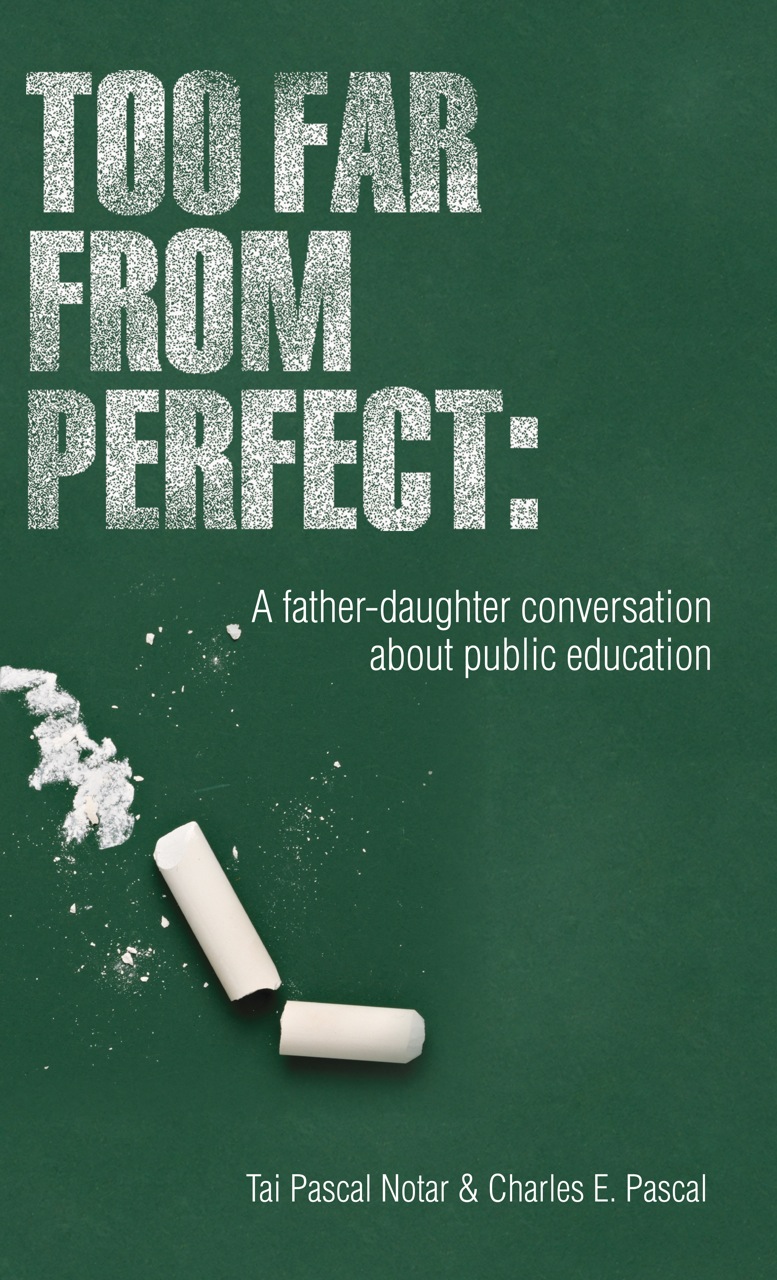FOREWORD
Take an aware 4 year old in early learning who becomes increasingly perceptive about her schooling experiences over the next 13 years into grade 12; add an inquisitive, caring father who happens to be an expert in early learning and higher education. Listen in as they discuss just about everything having to do with daily experiences in the school. What you have is Tai and Charles—daughter and dad dissecting the challenges of the learning experience in public education. What you have is Too Far from Perfect.
It’s a personal journey for sure. But it works as a kind of micro account of what it’s like to be a student in a big system, and a parent whose instincts are to be more interventionist than he knows he should be. Through the natural conversations that flow from “how was school today”, we find out how the little things are in fact big in their consequences—for better or for worse.
We learn a good deal. We learn how students have much to offer by way of constructive feedback to teachers under the right circumstances. We learn that they are much more insightful, and sensitive—not only to the needs of their peers but also the circumstances of the teacher—than is commonly recognized. We see unveiled a deep underutilized resource that would be easy to tap into and would have great benefits for the lives of students and teachers working more collaboratively. All of this is at the micro level; any student, parent, teacher would gain a great deal if they read this personal account and reflected on it in relation to their own experiences. I guarantee you that you will recognize some of your selves, and that you will open up avenues of thought that were in you, but unrecognized and untapped. You will discover things that you never thought about that are at first personal but on reflection generalizable.
While this is a personal journal of just two people, it feels familiar. We see ourselves as students recalling those teachers that have faded from memory—for some, good riddance, for others, the memory of a teacher who may have turned your life around is indelible. While these personal connections stoke memories, the reader gradually gets introduced into bigger policy matters. How should teachers be selected; what are the relative roles of academic knowledge, and emotional intelligence; what can a student do if the teacher is not listening; what is the role of the principal in relation to improving teachers individually, and especially in helping them learn together. How can policy improve teachers and teaching, and what should the role of the student be, not as a recipient of knowledge but as a learning partner.
Too far from Perfect makes you think in an enjoyable and insightful way. It is a learning journey. You can be inside the lives of Tai and Charles, and at the same time inside your own life. And you can wonder what it is like for the thousands of other families you know and don’t know. You can improve things if you take some action based on your reflections. Read it to stimulate your imagination—treat it as equivalent to taking a shower to let creative ideas come from the unconscious realm that is in you, but not yet surfaced. Enjoy the book. Learn from it. Act on it.
by Michael Fullan, OC. Professor Emeritus, OISE, University of Toronto


